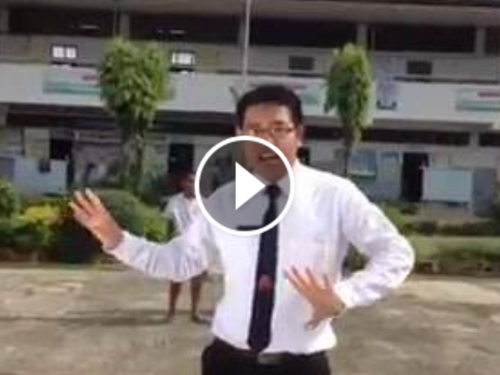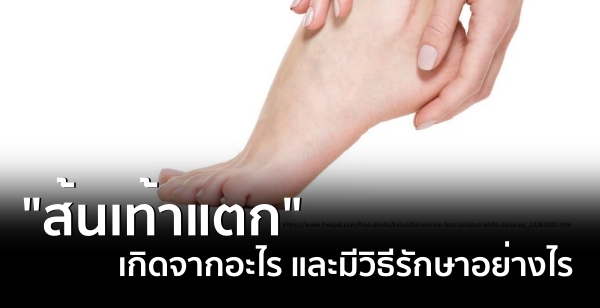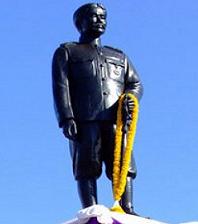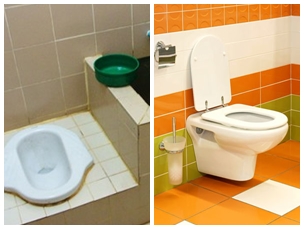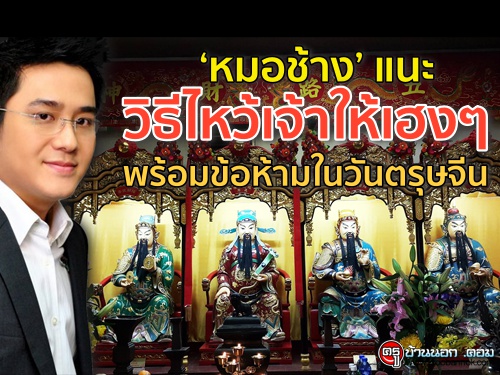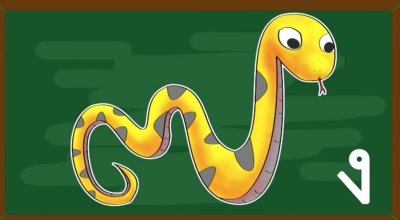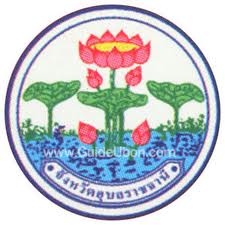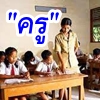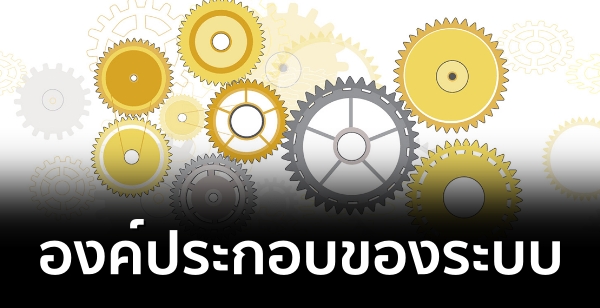A Study of the State of Problems and Needs for Organizing Public Mind Activities
In the high school Level
Santipong Yomarat¹, Assoc. Prof. Dr. Nirut Theungnak², Dr, Sompong Srikanlaya³
¹ Doctoral degree student in Curriculum and Instruction, Rajabhat Maha Sarakham University
²,³ Lecturers in Curriculum and Instruction, Faculty of Education, Rajabhat Maha Sarakham University
Abstract : This research aimed to: 1) study the state of problems and needs of organizing public mind activities in the high school level; 2) study the knowledge of public mind in the high school level; 3) study public mind logical thinking; 4) study the public mind behaviors in the high school level. The sample comprised 73 teachers who were in charged of public mind under Roi-et Office of Secondary Education Service Area 27 (Roi-et), 100 parents of high school education students of Muangsuangwitaya School, obtained through purposive sampling, and 210 students, obtained through stratified random sampling. The instruments consisted of: a questionnaire on the state of problems and needs for organizing public mind activities in the high school level, with the reliability of 0.85; a 4-choice test on knowledge of public mind, with 50 items and the reliability of 0.92; a 4-choice test to measure the level of the students public mind reasoning, with 50 items and the reliability of 0.88; and a rating scale evaluation form for public mind with the reliability of 0.93. The statistics employed in the analized dat was mean and standard deviation.
The results: the state of problems and needs for organizing public mind activities in the high school level, on the aspect of curriculum, model of organizing the activity, activity media, and measurement and evaluation, on the whole, was in the highest level. The highest rated problem and need were the model of organizing the activity. The students knowledge of public mind was in the fair level. Students public mind logical thinking must improved their quality, and the students public mind behavior was in fair level of quality.
Keywords: State of Problems and Needs for Organizing Public Mind Activities, Knowledge of Public
Mind, Public Mind Logical Thinking, Public Mind Behavior, High school Students
Introduction
The Thai society in the past was a Buddhist society that was full of love, connection, care, help and dependence on each other. The people lived together peacefully according to the characteristics of an ideal society. But at the present time, scientific progress and rapid development of information technology have brought about enormous changes in the global society as well as in the Thai society. The changes take place on the aspect of economy, politics and government. The way of life that has become
materialistic and has changed people to be more individually oriented. That is, they are less interested in public matters; they try to seek their personal benefit and ignore the public. This means the society lacks public mind and it affects individuals, families, communities, and the country. All these problems reflect the decline of public mind of the majority of the people (Chaiwat Suthirat. 2009 : 4) and it is perceived
that a part of the problem has come from the failure of providing education. The learning process must not aim to develop only the cognitive aspect of the people, but also build conscience of responsibility for the public and instill the right conscience as well. The Thai political crisis that has occurred since 2006 has revealed the political culture that is in conflict with the way of life in the community or the new civil society which is based on knowledge, love, and collaboration. It means that Thai people have encountered a crisis of value, virtue, and public mind, and have had altered behaviors as a result of the flow of foreign cultures. This has brought about value adjustment, materialistic behavior, and lack of public mind.
Developing public mind in a person should begin early in the childhood. The persons who have very high influence on the child are the parents, teachers and peers, and mass media, respectively. If the family, the teachers, the peers and the mass media constantly transmit good conscience and conscience for public properties to the child, the child will absorb the good characteristics into his own mind and keep them. Moreover, the nature of learning and interest of a child in each age differs. Developing public mind in the child, therefore, depends on the tactics of each development agent. It is up to him to decide what activity or experience should be organized for the child and how. There are many means to carry out such activities. Although the government sector has tried to develop the people to be ethical, to have public mind, and to have conscience for the public, under the National Economic and Social Development Plans, the results have not been as satisfactory as they should have been. This can be seen in situations that natural resources and the environment have been destroyed. Such destruction comes from a behavior that lacks public mind. Piriya Ninlamart (2007 : 25-30) conducted a survey and found that academically smart students tried to behave riskily to build their own area. Doing so might make them engrossed in the evil path. It was concluded that both the smart and not smart students lacked public conscience, lacked morality and lacked the foundations of democracy. They tended to be lazy, to cheat, to be boastful, and to be envious. This does not mean that the children were wrong, but it is an output of education that did not have enough power to build conscience. Organizing learning should not emphasize textbooks principally. Teaching should not cover only what is in the book without taking in what is learned from the life of the people in the community, society and environment. Learning the textbook should cover only a half and the other half should be with people in the society, community and environment which are counted as the foundation of morality and roots of democracy.
Developing public mind must cover 3 aspects: knowledge and understanding, reasoning in decision making, and behavior. The aspect of knowledge and understanding is knowledge and understanding of rights and duties of oneself and others in using public properties, knowing the outcome of an action or a circumstance, being able to keep pace with changes of the environment and the world. The reasoning in decision making is a process or way of thinking a person mainly uses in decision making concerning public mind. According to Kohlbergs theory, it is divided into 6 stages from low to high. The
lowest stage is physical punishment avoidance. The second stage is seeking material reward. The third stage is behaving as approved by others. The fourth stage is behaving according to rules, law, and religious principles. The fifth stage is self-respect and being proud of doing right things. The sixth stage is adhering to universal ethical principles such as equality, justice, humanity, and hatred for evil (Kosol Meekun and Narong Tiammek. 2002 : 47). In terms of the students real action, they were: 1) avoidance
of using public utility or doing damage to the public utilities commonly used by the group; 2) taking it as their own duty to take part in looking after public properties according to their ability, and 3) respecting the right of other group members to use public property by not taking the public property as ones own property as well as not hindering other people opportunity to use the public property. The author believes that public mind should be instilled and trained until it becomes a habit. In training each student to have more public mind, the trainer should reveal how a behavior without public mind or a behavior that ignores taking care of public property can cause various problems to the individual and the public. The student should be asked to think of the cause of and way to solve the problem.
The lack of public mind has become a growing social problem that needs to be solved urgently. This research, therefore, aimed to study the state of problems and needs for organizing public mind activities in upper secondary education.
Objective
To study the state of problems and needs for organizing public mind activities high school level.
Methodology
The study of the state of problems and needs for organizing public mind activities in high school level was a survey research.
Population and Sample
1. Population: 186 teachers who were in charge of public mind activities in the high school level in 73 schools under Roi-et Office of Secondary Education Service Area 27 (Roi-et), 11,845 students in the upper secondary level and in the academic year 2011, and 11,845 parents
2. The sample: the sample consisted of 73 teachers who were in charge of public mind activities in the high school under Roi-et Office of Secondary Education Service Area 27 (Roi-et), obtained through simple random sampling, and 100 parents of upper secondary education students in Muangsuangwitaya School, obtained through purposive sampling, and 210 students, obtained through stratified random sampling.
Year of Research 2012
Instruments
The study of the state of problems and needs for organizing public mind activities in the high school level used the following instruments.
1. A questionnaire on the state of problems and needs for organizing public mind activities in the high school level.
2. A 4-choice test on the knowledge of public mind of the students, containing 50 questions
3. A 4-choice test to measure the level of the students public mind reasoning in the high school level containing 50 questions
4. A rating scale for evaluation of public mind behavior of the students in the the high school level
Data Collection
The research procedure and data collection were carried out as follows:
1. The sampling of the 73 teachers who were in charge of public mind activities in the upper secondary level under Roi-et Office of Secondary Education Service Area 27 (Roi-et) employed simple random sampling. The sampling of 100 parents of the students in Muangsuangwitaya School employed purposive sampling. And the sampling of the 210 students employed stratified random sampling.
2. The questionnaires on the state of problems and needs for organizing public mind activities in the high school were sent to the sample.
3. Copies of the test on the students knowledge of public mind and the test to measure the level of the students public mind reasoning were sent to the sample.
4. Copies of the public mind behavior evaluation form were sent to the sampled teachers and parents.
5. The instruments were returned to the author.
6. The researcher collected the data from the instruments.
Data Analysis
The data analysis was carried out as follows:
1. Analyze the state of problems and the needs for organizing public mind activities in the upper secondary level. The data were interpreted and classified in to 5 levels as highest, high, moderate, low, and lowest.
2. Analyze the students knowledge of public mind in the upper secondary level. The data were interpreted as percent.
3. Analyze the level of the students public mind reasoning in the upper secondary level. The data were interpreted and classified into 5 levels as highest, high, moderate, low, and lowest.
4. Analyze the public mind behavior. The data were interpreted and classified into 5 levels as highest, high, moderate, low, and lowest.
The statistics employed in the analysis of data were mean and standard deviation. The data were interpreted and classified into 5 levels as highest, high, moderate, low, and lowest.
Conclusion
In the study of the state of problems and the needs for organizing public mind activities in the upper secondary level, it was found that:
1. The state of problems and the needs for organizing public mind activities in the upper secondary level, on the whole, was in the highest level ( 4.56). The problems are listed from high to low according to the value of the mean as follows: the aspect of the model of public mind activity organization had the problems in the highest level ( 4.82), and the aspect of measurement and evaluation of public mind had the problems in the highest level ( 4.55), the aspect of learning-teaching media on public mind had the problems in the high level ( 4.45), the aspect of the teachers lack of knowledge and understanding of the measurement and evaluation of public mind, and the aspect of curriculum and instruction of public mind had the problems in the high level ( 4.45) .
2. The needs for organizing public mind activities, on the whole, were in the highest level ( 4.56). The needs are listed from high to low according to the value of the mean as follows: the aspect of the model of public mind activity organization had the need in the highest level ( 4.81), and the aspect of measurement and evaluation of public mind had the need in the highest level ( 4.74), the aspect of learning-teaching media on public mind had the need in the high level ( 4.44), the aspect of the teachers lack of knowledge and understanding of the measurement and evaluation of public mind, and the aspect of curriculum of public mind had the need in the high level ( 4.45).
3. The students knowledge of public mind was at 56.74 %; the quality level was fair.
4. The level of the students public mind reasoning had the average of 2.56; the quality level was to be improved.
5. The level of public mind behavior had the average of 3.22; the quality level was fair.
Discussion
The study of the state of problems and the needs for organizing public mind activities in the upper secondary education level can be discussed as follows:
1. The state of problems of organizing public mind activities in the upper secondary education level, on the whole, was in the highest level ( 4.56) because organizing public mind activities is a matter of morality. Public mind stresses helping people to be good members of the society. Therefore, it was a problem for the teacher to organize the activity. The reasons are that the model of organizing the public mind activity was not clear-cut. Also, there was inadequacy of instruments for measurement and evaluation that yielded interpretable results. And the curriculum put more emphasis on science and technology. In terms of the need for organizing public mind activities, on the whole, the need was in the highest level ( 4.56). The aspect that had the highest need was the model of organizing public mind activities that could be an original model of organizing the activities. The application of such model of organizing public mind activities must incorporate activity organization plan, learning teaching media, and measurement and evaluation.
The students knowledge of public mind was at 56.74 % and the quality level was fair. Although the Core Curriculum of Basic Education B.E. 2551 (Ministry of Education, 2009) designates public mind as 1 of 8 desirable characteristics that the educational institution must develop in the learner, it does not emphasize the knowledge of public mind. A public mind action can be carried out properly or not depends on the knowledge of the matter. This is in congruence with Duangduen Bhanthumnavin (2005 : 2) who states that having knowledge of the society and being able to tell which action is right and should be taken, which action is bad and should not be taken, which behavior is proper or not, is important. The knowledge of public mind or the knowledge of social values changes along with the age, the level of education, cognitive development, and knowledge of the social and religious regulations of the person.
2. The level of the students public mind reasoning had the average of 2.56 and the quality level was to be improved. This is because organizing public mind activities did not develop the students public mind reasoning. Public mind comes from the ability to think in order to take a proper action. The thinking is similar to how the computer works. That is, an input is inserted into the processor and there comes the output. Therefore developing public mind must be carried out according to the concept stated by Duangduen Bhanthumnavin (2005 : 2) that the reason that a person uses to decide
to act or not to act in a certain way depends on public mind reasoning. Nevertheless, persons with different levels of public mind reasons may have actions that are similar or not similar. And also the public mind reason is related to intellectual and emotional development with the respect of basic thinking, thinking for communication, general thinking, and higher-order thinking or complex thinking skill.
4. The level of public mind behavior had the average of 3.22 and the quality level was fair. This is because public mind takes place because of training in childhood and it develops along the persons growth to adolescence and adulthood. Adults, thus, have to understand the nature of the child and give advice and encourage the right behaviors and instill public mind in the child. Furthermore, the child must be disciplinary and responsible which can be developed naturally. The child also learns to be disciplinary from the culture by the teaching and training from individuals and environment. This is a natural law of living together in the society, participating in activities, using things together, looking after public property, and sharing things among members of the group. However, the society at the present time is a society of consumerism that stresses the importance of materials. The society gives priority to the price rather than the value. The society aims to make benefit out of the nature and natural resources in order to change them to technology that gives convenience and comfort to the people in the society. The society is drifting along the flow of globalization of materialism. It is the society of imitation and competition in quantity rather than quality. It is the society of comparison of scientific and technological prosperity.
Bibliography
Ministry of Education. The Core Curriculum of Basic Education B.E. 2551: Bangkok. Agricultural
Cooperative Communities of Thailand Press, 2009.
Kosol Meekun and Narong Tiammek. The Results of Training of Using Ethical Reasons Incorporating
Mental Characteristics and Teacher Behaviors. Research Report Financially Supported by the
Master Project. Bangkok: Research and System Development. 2002.
Chaiwat Suthirat. Teaching Children to be Public-Minded. Bangkok: Vprint, 2009.
Duanfduen Bhanthumnavin. A High-Level Textbook on Intelligence and Learning Ability for
Thinking for a Better Life. Tree of Ethics Theory. Research and Personnel Development.
Bangkok: Chulalongkorn University Press. 1995
Piriya Nilamart. Factors Affecting the Public Mind of the Students in the 4th Class Range, Roi-et Office of
Secondary Education Service Area:


 ค้นหาทุกอย่างในเว็บครูบ้านนอก :
ค้นหาทุกอย่างในเว็บครูบ้านนอก :










